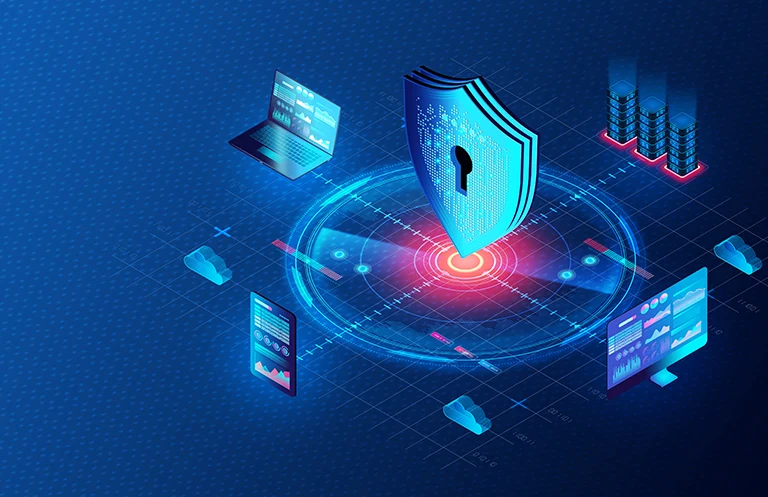Drug delivery systems are an integral part of the healthcare ecosystem. Patient health outcomes hinge on the precise delivery of medication aligned with the regimen prescribed by the medical practitioners. The key delivery devices in scope for the digital drug delivery include the inhalers, injectors, infusion pumps, and the nasal sprays. In a recent survey of the medical device manufacturers, data security and privacy, connectivity, and user experience emerged as the most prominent technology considerations in building products for the digital drug delivery systems.
These systems cover both the invasive and non-invasive applications with functionalities such as dosage monitoring, regimen adherence, and safe usage/administration tracking. Digital technologies driving the connected drug delivery solutions include the Internet of Things (connectivity, remote device monitoring and management, diagnostic and software patching), Machine Learning (audio-visual input-based device diagnostics and control), and mobility (sensor data, user focused mobile applications for reporting, engagement and feedback loop for providers, payers, and practitioners).
Table of Contents
- Smart injectors
- Smart inhalers
- Smart Infusion Pumps
For effective usage in and around the patient’s home, the connected medical devices must be small and power efficient. Data security and privacy are vital due to the personally identifiable information in the devices run at home.
Here are some examples of such devices:
Smart injectors
Small dosage, regimen-based medications for non-critical conditions that impact the body’s metabolism e.g., diabetes, may need daily injection of insulin. Accurate dosage and appropriate, minimally invasive administration are the important factors to keep the patient healthy and capable for normal activity level through the day.
The core functionalities of the digital smart injectors include:
- Sensor powered device control (optimal needle contact with the patient’s skin, drug dosage monitoring in every shot, condition of the cartridge, needle, and the temperature of medication).
- Short range wireless connectivity and device management (firmware updates, security patches).
Additional functionalities like mobile app for device operational reports, user reporting (regimen adherence), and healthcare guidelines are often included to improve user experience and engagement.
Auto injectors or pens are the most common form of injector devices available for the consumers with short range Bluetooth wireless connectivity and mobile integration. Emerging technologies like augmented reality using smart glasses to provide user training and visual demonstration of device usage, as well as voice assistance on the steps, promise to greatly increase the user confidence and thus the adoption of the autoinjectors as device class.
Smart inhalers
For respiratory conditions like asthma, bronchitis, and other upper respiratory track distress attributed to infections, allergies that cause swelling, congestion and cough, medicine inhalers and nasal sprays provide pain relief and therapeutic usage. The key design considerations for digitally enabled metered dose inhalers include dosage accuracy, prescribed regimen adherence, usage analytics, and reporting.
The core functionalities of the smart digital inhalers include:
- Sensor powered device control (appropriate medicine cartridge/nozzle placement and device usage, accurate medicine release and dosage).
- Sensor powered real time tracking, mobile app calculated air quality index for detecting high pollution, high pollen environments, and alerting the patient to avoid the same.
- Short range Bluetooth wireless connectivity to mobile phone apps and gateways.
- Device management including firmware updates and security patches.
The additional functionality includes mobile app-based tracking of drug regimen adherence and feedback loop to practitioners (on patient consent) for correcting the drug course.
Smart Infusion Pumps
Used in intravenous infusions for plasma therapy, chemotherapy to be treated at home or care facilities, these devices have applications across the flow rates, drug viscosity, and the required device mobility. The fundamental design considerations are maintaining the patient’s health throughout recovery by providing precise, customizable, and programmatically controlled flow rates sustained over time for fluids with diverse viscosities.
The core digital functionalities include:
- Sensor powered precise, customizable, and intelligent flow control (diverse fluid viscosities, flow rates w.r.t drug, nutrient infusion usage).
- Device monitoring (pump, valve) including device health, remaining useful life, diagnostic reporting.
- Device management – firmware updates and security patches.
- Interactive human-machine interface for configuring and showcasing flow rates, infusion duration and frequency.
The additional technology features include ML led motor control for pumps, cloud based IoT platform, and mobile app for data capture and feedback to the care providers and practitioners. This will help monitor patient condition and run clinical analytics and diagnostics to generate condition-based recommendations to modify the drug regimen and the nutritional support.
There are other digital devices like pill dispensers that only track drug regimen adherence but are considered a part of the digital drug delivery segment.
As per the latest market research, the healthcare companies believe that digital drug delivery will boost engagement among the healthcare value chain participants – patients, caregivers, and medical practitioners and also provide a competitive edge. Pharmaceutical companies hope to use these systems to ensure drug regimen adherence and fine-tune the medicine formulations and prescribed dosage patterns by understanding the patient health improvements in the demographic segments that are most vulnerable to the medical conditions addressed by these systems.
Global emergencies like the COVID-19 pandemic pushing healthcare infrastructures across the globe to a breaking point. Technological advancements and improved adoption in digital drug delivery systems will help improve in-home drug administration effectiveness, overall regimen adherence to reduce overall cost of treatment and risk of hospitalization.
eInfochips has end-to-end medical device development capabilities with experience of delivering multiple digital drug delivery solutions like auto injectors and smart inhalers across hardware, embedded and digital technology stacks.
To know more about our medical device development capabilities, please talk to our experts today.












